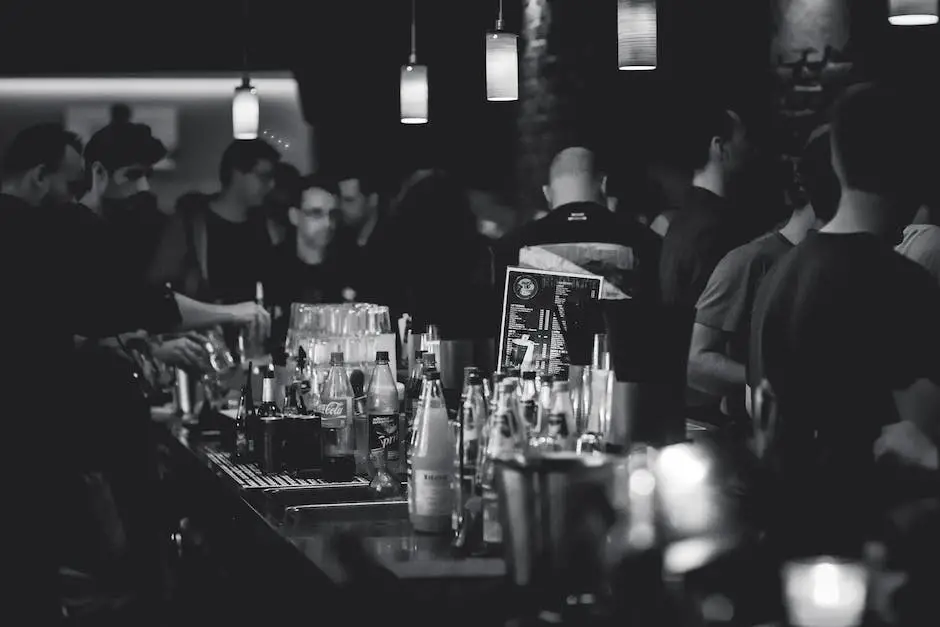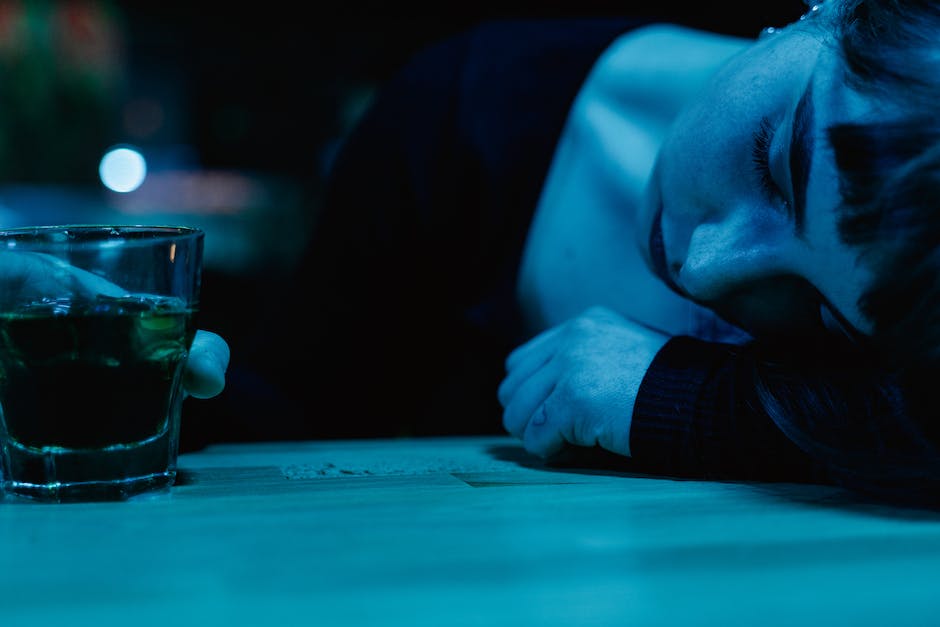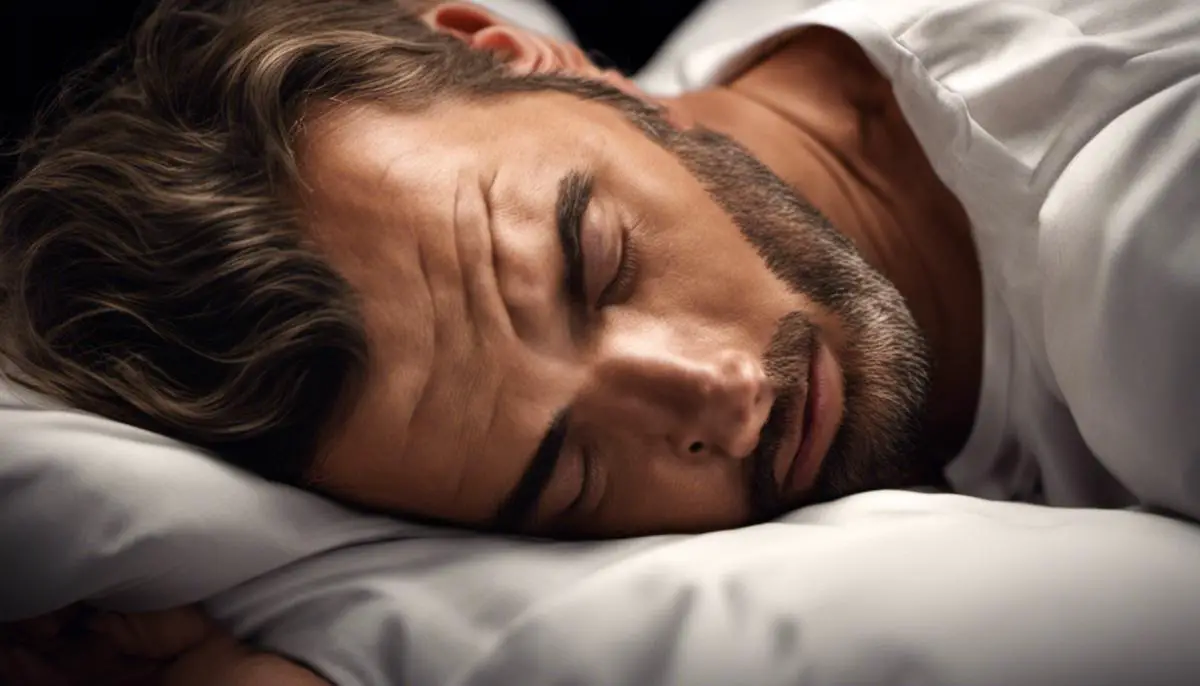We live in a world where late-night social gatherings often involve drinking, and the calming effects of a glass of wine or a bottle of beer have led many to theorize about their impact on sleep and dreams. But, what exactly are dreams, and how are they affected by alcohol? This article takes you on an exploratory journey through the world of dreams, the science behind them, and the influence that alcohol has on this nocturnal brain activity. We will delve into the fascinating intricacies of REM sleep, the stage of the sleep cycle where dreams predominantly occur, and look at how alcohol interplays with this system. We will discuss the effects of intoxicated slumber, highlighting shifts in sleep latency and REM quantities, and examine the resulting changes in dreaming patterns. The information presented here is underpinned by reputable research studies and expert opinions, ensuring the highest level of credibility.
The basic science behind dreaming
The Basic Science Behind Dreaming
Dreaming is a natural phenomenon that happens during the stage of sleep known as Rapid Eye Movement (REM) sleep, as well as in other sleep stages, though to a lesser extent. Sleep itself is divided into several stages, with the cycle beginning with light sleep, progressing to deep sleep, and then finally entering the REM phase. Each of these stages lasts for varying lengths of time and repeats multiple times throughout the night.
The dreams we remember usually occur in the REM phase of sleep, during which the brain and body almost act as if they are awake. Brain activity as noted in EEG, or electroencephalogram, readings during REM sleep is similar to that during wakefulness. Additionally, this is when the eyes start moving rapidly beneath eyelids, hence the name of the phase.
Although scientists are not entirely sure how dreams are formed, most believe they are a combination of brainwaves and activity in the neurons. Various stimuli throughout the day—emotional, physical, or otherwise—are processed and interpreted by the brain into dream sequences. This could explain how individuals often dream about daily events or people they interact with frequently.
The Effects of Alcohol on Dreams
Being a sedative, alcohol impacts the pattern and structure of a person’s sleep. Directly after one consumes alcohol and enters the initial sleep stages, this sedative effect tends to enhance sleep depth. However, contrary to this seemingly beneficial impact, alcohol disrupts the latter part of the sleeping cycle, particularly the REM stage known for the most dream activity.
In specifics, high volumes of alcohol might suppress REM sleep early in the sleep cycle. This could lead to fewer dreams, or the reduced ability to remember dreams. But as the alcohol’s effects wane towards the latter part of the sleep cycle, a ‘REM rebound’ often occurs, characterized by extended and heightened periods of REM sleep. This could potentially lead to intense and vivid dreams, possibly morphing into nightmares.
It’s worth mentioning that night-time alcohol consumption can also influence sleep latency, or the duration required to fall asleep. While it might quicken sleep onset, conversely, it could result in low-quality sleep as the night progresses. This disrupted sleep pattern can additionally affect our dreams and our ability to remember them.
Notably, one specific type of dream, often linked with alcohol consumption—particularly withdrawal and abstinence following extensive and heavy alcohol use—consists of ‘withdrawal nightmares’. These can be intensely vivid, instilling anxiety, and potentially disrupting sleep.
Lastly, it’s essential to acknowledge that the effect alcohol has on sleep and dreams consistently varies across individuals. This variation is determined by multiple factors that range from the frequency and volume of alcohol intake to a person’s alcohol tolerance, sleep conditions, as well as underlying physical and mental health conditions.

Alcohol’s impact on sleep
Alcohol Consumption and Sleep Patterns
It’s widely recognized that alcohol consumption impacts the body’s sleep patterns in many ways. Alcohol operates as a depressant, sedating the person imbibing it. Consuming alcohol before bedtime can affect sleep differently, with both beneficial and counterproductive consequences on various sleep aspects.
In relation to sleep latency or the time it takes to fall asleep,
alcohol may expedite this process. Some people resort to alcohol as a sleep aid, given its effectiveness in producing drowsiness. Nevertheless, the quality of sleep induced by alcohol typically falls short, often leading to the body bypassing the initial sleep stages and going straight into a deep sleep stage.
As for sleep interruptions,
alcohol has been found to greatly increase these throughout the night. After its sedative effects wear off, restless sleep or even insomnia can ensue. Some individuals may also experience nocturia, the need to urinate frequently during the night, as a result of alcohol acting as a diuretic. This can also lead to further sleep disturbances.
Alcohol’s Effect on REM and non-REM Sleep
Sleep can be divided into two broad types: REM (Rapid Eye Movement) sleep, during which most dreaming occurs, and non-REM sleep, which can be further divided into three stages, culminating in deep or ‘slow-wave’ sleep. Interestingly, alcohol has a distinct impact on both REM and non-REM sleep.
In the initial part of sleep after alcohol consumption,
there is usually a suppression of REM sleep and an increase in deep non-REM sleep. This is part of the reason individuals may feel drowsy quickly after drinking. However, as the night progresses and the alcohol is metabolized, these effects can backfire: REM sleep rebounds, sometimes with an unusually high intensity, and deep non-REM sleep decreases.
Alcohol and Dreaming Patterns
With this alteration in sleeping stages, there are likely changes in dreaming patterns as well. A suppression of REM sleep early in the night can result in less dreaming during this period. However, the rebound effect later on often makes up for this. There can be more intense or vivid dreams, sometimes even nightmares, during the latter half of the night.
There is also some research evidence to suggest that alcohol can affect the content of dreams.
Some studies have found an increase in aggressive or negatively-toned dreams after consuming alcohol. This could be related to withdrawal effects experienced as the alcohol is being metabolized.
It’s essential to note that these patterns, while general, can vary from person to person,
depending on factors such as the amount of alcohol consumed, their metabolic rate, and individual differences in the sleep cycle.
The Role of Habitual Drinking
Habitual drinking can lead to the development of tolerance and dependence, complicating the effects of alcohol on sleep and dreams even further. In these cases, withdrawal symptoms can significantly impact sleep, often necessitating professional medical intervention to manage these effects effectively.

The link between alcohol and dreaming
The Impact of Alcohol on REM Sleep
For context, Rapid Eye Movement (REM) sleep is the stage in which we dream most vividly. Alcohol substantially affects our sleep cycle, interposing particularly on this pivotal REM stage. We encounter six to seven REM cycles in a well-rested night. However, alcohol usage can dramatically curtail this number, leaving our normal sleep patterns in disarray.
The Immediate Impact of Alcohol on Dreams
In the immediate aftermath of consuming alcohol, many people may notice a more profound, heavier sleep known as “slow-wave sleep.” Initially, alcohol appears to induce sleep, helping individuals to fall asleep quicker. Slow-wave sleep is associated with restoration and healing properties; therefore, it may seem alcohol helps improve sleep. However, this is only temporary.
As the alcohol starts to wear off, the body can spring back into lighter REM sleep, which may lead to particularly vivid and even disturbing dreams. This shift can occur in the middle of the night, often causing sleep disturbance and reducing the overall sleep quality.
How Alcohol Affects Dream Vividness and Content
Alcohol affects the neurons in the brain, often enhancing emotions and causing anxiety, both of which could contribute to dream vividness and content. Alcohol-induced anxiety can lead to nightmares and increased dream intensity. When the body enters REM rebound sleep, it attempts to make up for lost REM sleep by increasing the duration of the REM stage, causing dreams to become more vivid than usual.
Alcohol could also influence dream content. For instance, alcohol-induced changes in brain activity could modify dream themes or scenarios. Also, if an individual is under stress or anxious, these feelings could infiltrate their dreams.
Impacts on Dream Recall
Alcohol can impair memory formation, affecting an individual’s ability to recall their dreams once awake. This memory impairment is due to an effect called “alcohol-induced blackouts,” characterized by immediate and short-term memory loss from heavy drinking. Therefore, alcohol can sometimes result in a person not remembering their dreams at all.
However, disrupted sleep caused by drinking can lead to frequent awakenings throughout the night, and waking up during REM sleep increases the chances of remembering dreams. Therefore, alcohol can have a contrasting impact on dream recall – it can either impair remembrance due to induced blackouts or enhance recollection due to disrupted sleep.
The Long-Term Impact of Alcohol on Dreams
Long-term consumption of alcohol can have more severe effects on the dreaming process. It can lead to persistent disturbed sleep patterns, recurrent nightmares, and even sleep disorders like insomnia. Furthermore, people who are dependent on alcohol often experience more vivid and distressing dreams, especially during withdrawal phases.
Overall Observations
In summary, alcohol has a profound influence on the various aspects of the dreaming process. It can distort the REM sleep phase, impacting the regularity, intensity, nature, and recall of dreams. As the human body attempts to adjust to the irregular sleep pattern induced by alcohol, it may culminate in more vivid and recurring dreams. If alcohol is consumed excessively over an extended period, these effects can intensify, giving rise to ongoing sleep disruptions and even triggering sleep disorders. It’s important to consider these serious drawbacks, whether the alcohol is being consumed to facilitate sleep or alleviate stress.

Research studies and expert opinions
Alcohol and Its Effects on REM Sleep
Alcohol, a type of depressant, has sedative properties that can help an individual fall asleep more quickly. Yet, it can also change the quality of sleep, especially in the latter portion of the night by reducing REM (Rapid Eye Movement) sleep. This is a critical sleep stage during which the majority of our dreaming takes place. This finding is supported by a study by Ebrahim et al. in 2013. Their research indicated that alcohol may decrease REM sleep in the initial sleep stages but paradoxically increase it during the latter stages of the night as the effects of alcohol begin to subside.
Impact on Dream Recall
Alcohol consumption, especially in larger quantities, can impair memory, making it more difficult for individuals to recall their dreams. This finding comes from a study conducted by Goodwin et al. in 1969 and further supported by various other studies. The effect on dream recall becomes even more evident with heavy alcohol consumption, leading to a focus on a phenomenon known as “blackouts,” where individuals can’t recall events that happened while they were intoxicated.
Alcohol and Nightmares
Some research suggests that alcohol can increase the likelihood and intensity of nightmares. Believed to occur because of the disruption of REM sleep, a study conducted by Schredl, Alm, and Sobanski in 2001, suggested that alcohol could increase the vividness and frequency of nightmares.
Rebound Effect
As alcohol wears off, the body can experience a rebound effect, leading to more vivid and intense dreams during the early morning when REM sleep is longer. This is as a result of the body trying to catch up on the REM sleep which it missed out on the earlier part of the night. Research by Ebrahim et al. in 2013 supports this, pointing out that the second half of the night may feature an increase in REM sleep due to the body rebounding from the alcohol-induced suppression earlier.
The Influence of Alcohol Withdrawal on Dreaming
It may come as a surprise that withdrawing from alcohol can significantly increase REM sleep, leading to an escalation in dreaming. According to a comprehensive study by Gillin et al., conducted in 1994, alcohol withdrawal can trigger a REM sleep rebound effect. This effect can lead to intense and often unsettling dreams or nightmares. Also, this withdrawal process is linked to dreams where the person envisions consuming or craving alcohol, which can be disturbing especially for those on their recovery journey from alcohol addiction.

Possible long-term effects and health implications
How Alcohol Consumption Impacts Dreaming
The influence of alcohol on dreams stretches into the entire sleep cycle. In particular, it changes the duration spent in the Rapid Eye Movement (REM) phase, which plays a pivotal role in dreaming. While it is true that consuming alcohol before sleep can induce feelings of drowsiness due to its sedative nature, this effect is temporary and often leads to a disruptive sleep pattern called the “rebound effect.” This effect is essentially a compensatory response of the brain to counter the alcohol-induced sleepiness by enhancing alertness. Consequently, this can result in sleep fragmentation or the experience of vivid, intense dreams or nightmares.
Correlation Between Alcohol and Dreaming
Alcohol disrupts the normal balance of brain chemicals and this alteration may prompt vivid, strange, or frightening dreams. The intoxicating substance has the potential to enhance the emotional intensity of dreams, and individuals often report feeling strong emotions within their dreams after consuming alcohol. Further exacerbating matters, alcohol consumption can impair the brain’s ability to form new memories and this memory impairment might contribute to the disturbing quality of dreams post-alcohol consumption.
Additionally, regular excessive alcohol consumption can exacerbate sleep disorders such as sleep apnea and insomnia, which can further influence the quality and pattern of dreams. For example, individuals with sleep apnea might experience more nightmares due to frequent awakenings and heightened anxiety levels.
Long-term Effects of Alcohol on Dreaming
Regular alcohol intake can lead to dependence and withdrawal symptoms, and this has significant implications for sleep and dreams. People with alcohol dependence often experience insomnia and disrupted sleep patterns, and during periods of withdrawal, they may have intensely vivid and unsettling dreams or nightmares. These distressing dreams can increase the risk of relapse in individuals trying to stop or moderate alcohol consumption.
Health Implications
Apart from effect on dreams, continuous alcohol consumption can have severe health consequences. It can damage the liver, heart, and other vital organs and increase the risk of developing mental health disorders like depression and anxiety. Moreover, as alcohol impairs the quality and structure of sleep, chronic fatigue, impaired performance, and reduced cognitive function can ensue. The overall effect of alcohol on dreams and sleep quality can significantly impact an individual’s overall quality of life.
The Necessity for Further Research
It’s important to note that much about the direct effects of alcohol on dreams isn’t fully understood, with research in this area being somewhat limited. As such, it hampers our understanding of the long-term implications, necessitating further studies to establish a more comprehensive view. Nevertheless, sufficient evidence exists to promote reducing or avoiding alcohol consumption to maintain healthy sleep patterns and reduce the potential of adverse effects on dreaming.
Public Health Considerations
Recognizing the harmful impact of regular and heavy alcohol consumption on sleep and dreams is critical for public health policymakers. Emphasizing the need for effective interventions and outreach strategies aimed at raising public awareness about the relationship between alcohol, sleep, and dreams is of significant importance to promote healthier behaviors and lifestyle choices.

While the occasional indulgence might not lead to drastic changes, the potential long-term effects of regular alcohol consumption on sleep and dreaming are an important concern. If sleep is the rhythm of our bodies and dreams the melody of our minds, then alcohol, it appears, can significantly alter these harmonious tunes, with possible implications on our mental and physical health. Interestingly, for all its initial sleep-inducing properties, alcohol may ultimately hinder natural sleep mechanisms and alter the architecture of our dreams. So, the next time you reach for that nightcap, it’s worthwhile to ponder over the unseen effects of alcohol on your dreams and nocturnal serenity. Our exploration into this topic aims to open up a dialogue about the importance of healthy sleep practices and the impact of our lifestyle habits on the realm of dreams.
